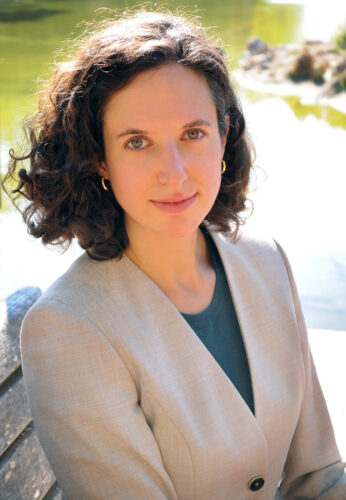Image Courtesy of Hannah Han.
Writer, Copy Editor, News Editor, Features Editor, and eventually Editor-in-Chief: during her time at Yale, Ilana Yurkiewicz (YC ’10) wore many hats at the Yale Scientific Magazine (YSM). But she didn’t leave science writing behind after graduation. Even now, as a clinical assistant professor of primary care and population health at Stanford, Yurkiewicz combines her passions for writing and medicine in her work as a science journalist, author, and physician. “YSM was where I got my start. I always had an itch to write and take complex scientific concepts and make them understandable for people,” she said.
As an undergraduate, Yurkiewicz explored the depths of a liberal arts education, taking philosophy courses and writing seminars in addition to a typical pre-med workload of chemistry and biology. She also conducted genomics research in a bioinformatics lab studying DNA testing for genetic conditions, which sparked her interest in bioethics and the intersection between science and the humanities. She graduated in 2010 with a degree in Molecular, Cellular, and Developmental Biology.
After Yale, Yurkiewicz took a year off and completed the American Association for the Advancement of Science (AAAS) Mass Media Science and Engineering Fellowship in science journalism, where she worked as a science and health reporter at The News & Observer in Raleigh, North Carolina. “I had a couple of stories on the front page, and it was always really exciting to see that […] It’s always been really important to me that we bridge the gap between hospitals and laboratories with everyday lives,” Yurkiewicz said. Following her passion for bioethics, Yurkiewicz also interned for the Presidential Commission for the Study of Bioethical Issues before attending Harvard Medical School.
During her time at Harvard, Yurkiewicz continued writing, creating a blog column called “Unofficial Prognosis” for Scientific American where she shared reflections on her medical school experiences with hundreds of thousands of readers. “I had full editorial freedom to write about whatever I thought was interesting,” Yurkiewicz said. She then moved across the country to complete her residency in internal medicine, followed by a fellowship in oncology and hematology, at Stanford. Now, as a faculty member there, she co-directs a primary care center for cancer survivors.
In July, Yurkiewicz published her debut book, Fragmented: A Doctor’s Quest to Piece Together American Health Care, which she worked on for two years. Fragmented was inspired by her own experiences as a physician navigating the healthcare system and making decisions based on fragmented medical records. “I found myself always working in a partially blindfolded state to stitch together patient stories,” Yurkiewicz said. She first became interested in the topic after delving into the history of converting paper patient notes into a digital format, and she began to investigate how medical records can vanish when patients transfer between medical facilities. Fragmented zooms out to investigate barriers beyond record-keeping that fracture a patient’s story into pieces, and she explores how doctors and patients can piece them back together.
In the future, Yurkiewicz hopes to write a second book chronicling her experiences as a physician providing primary care to cancer survivors. She plans to focus on the ‘hard questions’ of life, death, and serious illness that cancer patients must grapple with throughout their diagnosis and treatment journeys. “My patients often ask me to write stories to share their experiences and advocate for them,” Yurkiewicz said. She explained that she takes great care to convey empathy and compassion and to protect confidentiality while exploring complex issues that her patients face.
For Yurkiewicz, writing journalistic pieces with nuance and depth has the power to impact a large audience. Through her work, she aims to empower people to advocate for more comprehensive solutions to reform the healthcare system. “Illness is a great equalizer, and my focus [is] to write for everyone—physicians, policymakers, patients, and the general public,” Yurkiewicz said. But she also hopes to someday explore a new genre. “I wrote stories for fun at Yale,” she said. Her ‘pipe dream’ is to return to those roots and write a science fiction novel, grounding her stories in real science. Although she has pursued her passion for science writing alongside medicine, patient care has always been Yurkiewicz’s highest priority, and she has periodically taken breaks from writing to focus on honing her medical practice. “There are ebbs and flows in the busy doctor life, but science writing always comes back,” she said. Balancing multiple professional hats as a physician and journalist is difficult, but Yurkiewicz emphasizes that it is possible. Her advice for students interested in both: “Pursuing a career in science journalism and medicine is a harder path, but if you really care about something, you will do it well.”

